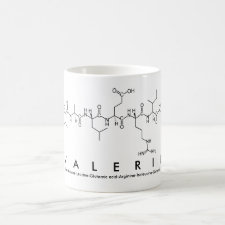
Authors: Chapuis F, Pichon V, Lanza F, Sellergren B, Hennion MC
Article Title: Optimization of the class-selective extraction of triazines from aqueous samples using a molecularly imprinted polymer by a comprehensive approach of the retention mechanism.
Publication date: 2003
Journal: Journal of Chromatography A
Volume: 999
Issue: (1-2)
Page numbers: 23-33.
DOI: 10.1016/S0021-9673(03)00552-1
Alternative URL: http://144.206.159.178/FT/553/92283/1603547.pdf
Abstract: Direct, selective solid-phase extraction of triazines from aqueous samples is presented using a molecularly imprinted polymer (MIP) made with terbutylazine as template molecule. After optimization of the steps of the procedure, 14 triazines including degradation products were studied and satisfactory extraction recoveries were obtained except for thiotriazines. By comparing results obtained with the terbutylazine MIP and a similar non-imprinted polymer, it was determined that retention was achieved via specific interactions except for hydroxyterbutylazine. Selectivity of the extraction procedure was also verified by applying the MIP for the extraction of phenylureas that were not retained on it. The effects of the charge distribution and of molecular volume of the triazines (obtained by molecular modeling) on the selectivity of interactions between the analytes and the MIP were studied. However, when the optimized procedure was applied to real samples, low extraction recoveries were obtained due to strong matrix effects: ion-exchange occurs between the carboxylate groups of the MIP and the ionic species of the sample, that prevents subsequent specific interactions. By introducing an acid wash step, the procedure was successfully applied for the class-selective extraction of triazines from industrial effluent and surface water samples. Finally, increased extraction recoveries were achieved for the polar degradation products of triazines by using a mixed-phase composed of a polymeric sorbent and the MIP. (C) 2003 Elsevier Science B.V. All rights reserved
Template and target information: terbutylazine



Join the Society for Molecular Imprinting

New items RSS feed
Sign-up for e-mail updates:
Choose between receiving an occasional newsletter or more frequent e-mail alerts.
Click here to go to the sign-up page.
Is your name elemental or peptidic? Enter your name and find out by clicking either of the buttons below!
Other products you may like:
 MIPdatabase
MIPdatabase









